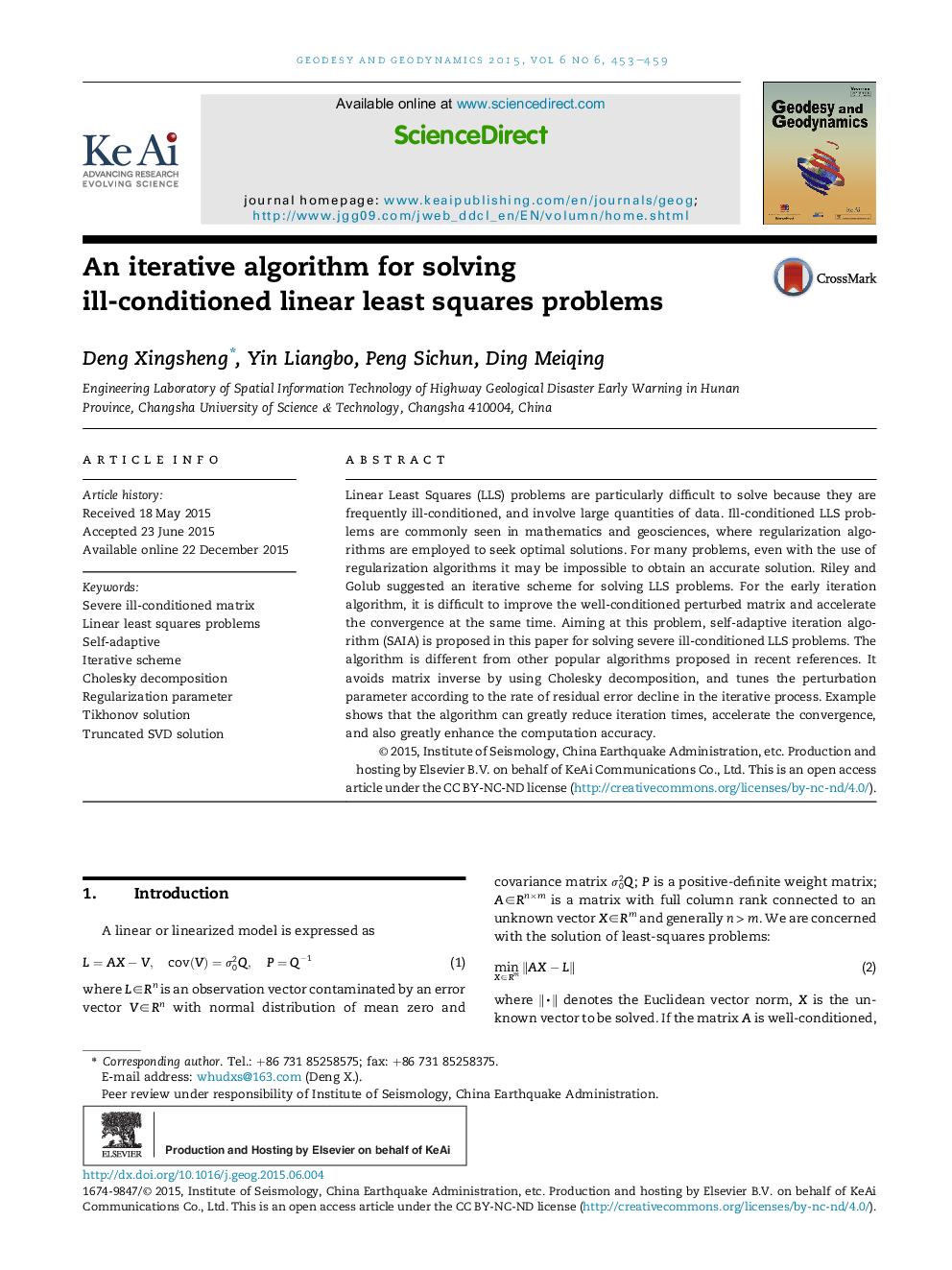| Article ID | Journal | Published Year | Pages | File Type |
|---|---|---|---|---|
| 4683603 | Geodesy and Geodynamics | 2015 | 7 Pages |
Linear Least Squares (LLS) problems are particularly difficult to solve because they are frequently ill-conditioned, and involve large quantities of data. Ill-conditioned LLS problems are commonly seen in mathematics and geosciences, where regularization algorithms are employed to seek optimal solutions. For many problems, even with the use of regularization algorithms it may be impossible to obtain an accurate solution. Riley and Golub suggested an iterative scheme for solving LLS problems. For the early iteration algorithm, it is difficult to improve the well-conditioned perturbed matrix and accelerate the convergence at the same time. Aiming at this problem, self-adaptive iteration algorithm (SAIA) is proposed in this paper for solving severe ill-conditioned LLS problems. The algorithm is different from other popular algorithms proposed in recent references. It avoids matrix inverse by using Cholesky decomposition, and tunes the perturbation parameter according to the rate of residual error decline in the iterative process. Example shows that the algorithm can greatly reduce iteration times, accelerate the convergence, and also greatly enhance the computation accuracy.
